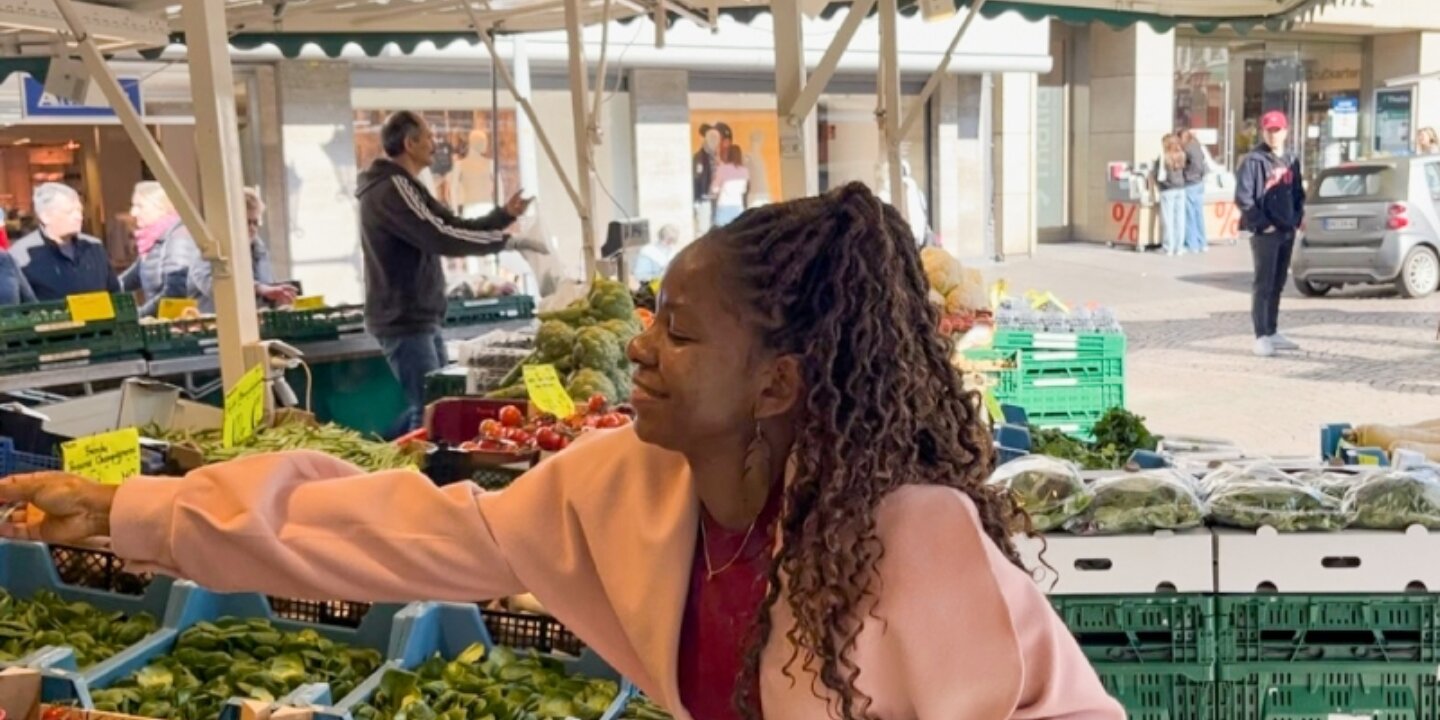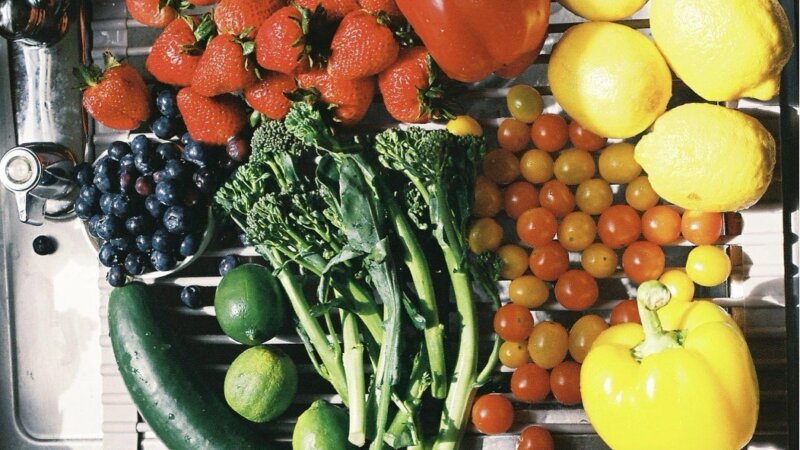Local Markets: The Beating Heart of Healthy Cities

At Bonner Market located at the city center in Bonn, Germany. The market offers a wide variety of fresh produce, along with a selection of cooked food.
Balance Phala is a sustainable food systems officer and Co-lead for ICLEI global CityFood program. In her work she collaborates with ICLEI regional offices across the globe to accelerate local and regional government action towards urban food systems transformation for healthy people, healthy landscapes and healthy climate. She participated in the 2025 food systems e-course. Balance wrote a blog about food markets as essential parts of urban food environments.
Growing up, food markets were at the heart of the meals my mother lovingly prepared. I vividly remember watching her and my grandmother weave through market stalls buying fruits and vegetables. These weren’t just transactions — they were exchanges with familiar women vendors, many of whom set up near the taxi ranks.
In summer, I would eagerly ask my mum to bring back mangoes and peaches. I even knew which vendor to suggest. My criteria were simple: the fruit had to be delicious, the vendor friendly, and ideally, she’d throw in a little extra if you bought more than two items. Those small gestures stayed with me.
Whenever I had the chance to tag along, I’d point excitedly at the produce I wanted, absorbing the rhythm of the market — the banter, the colours, the variety. I didn’t fully understand it then, but I felt a quiet urge to spread our purchases across different vendors. It was as if I already sensed the importance of balance and support within that ecosystem. To this day, my mother insists that real vegetables come from the market.
As I got older, like many people, I found myself shopping more often at supermarkets — drawn by the convenience of one-stop shopping. Markets became an occasional stop, and I lost touch with that part of my food story.
Recently, though, I had the opportunity to revisit food markets — not as nostalgia, but as a vital part of urban food systems. Through ICLEI CityFood, we engaged with 16 cities across the globe to explore how food markets operate: the governance that shapes them, the policies that regulate them, and the practices that keep them resilient. We gathered insights through interviews and facilitated peer-to-peer exchanges, where cities shared challenges and opportunities for strengthening markets.
What I came to understand is that these markets — known by many names around the world — are far more than places to buy ingredients. They are living infrastructures where culture, nutrition, sustainability, and livelihoods intersect. They offer fresh, affordable, culturally relevant food, often from nearby farmers. They cut food miles, support small-scale producers, and serve as nodes of economic opportunity.
This renewed perspective left me with a sense of responsibility — not just as a sustainable food systems expert, but also as a consumer. Supporting markets means supporting livelihoods, traditions, and the resilient food systems cities urgently need.
Drawing on lessons from the food systems e-course — especially Module 2 — the proverb Mwenye macho haambiwi tazama (“One who has eyes is not told where to look”) captures the resilience of those working in these markets. They sustain critical food networks, often without formal recognition. Acknowledging and strengthening their role is essential.
So here’s my ask to you. The next time you visit a local food market, go with intention:
Notice the people who sell and buy there.
Observe how food arrives, how it’s transported, displayed, and sold.
Think about the waste that happens when food isn’t bought, and what that means for the vendor who grew or sourced it.
Ask yourself: What makes this market work? What challenges does it face, and what can I do to make it better? Because when we support markets, we’re not just feeding ourselves — we’re feeding the future.
(P.S. Read the newly published CityFood Handbook for Healthy and Resilient Cities. It might just change how you view markets in your city.)
Author

Balance Phala
e-course participant




